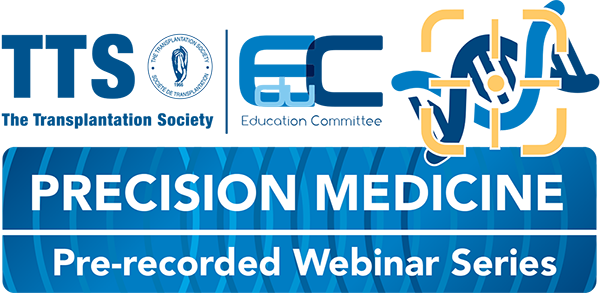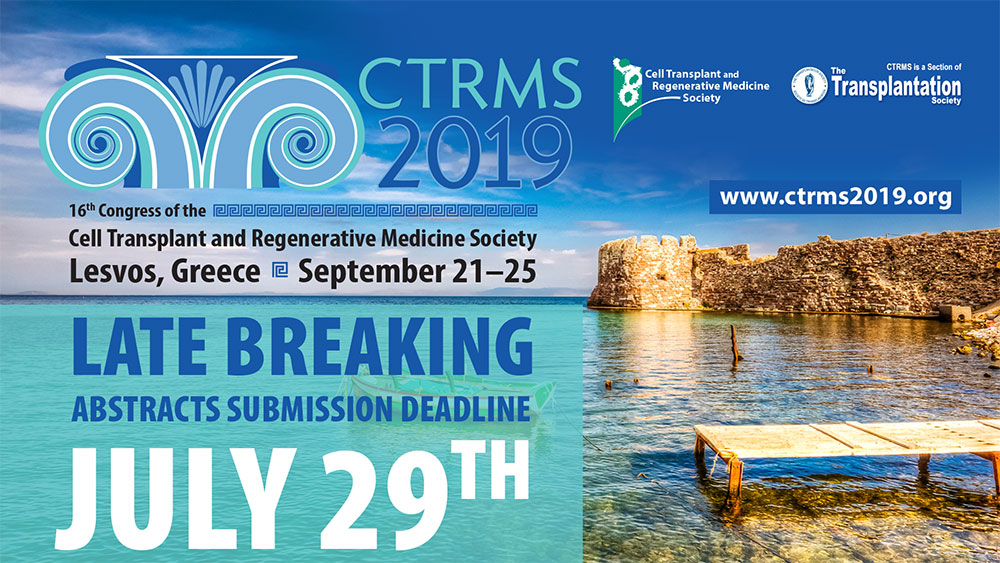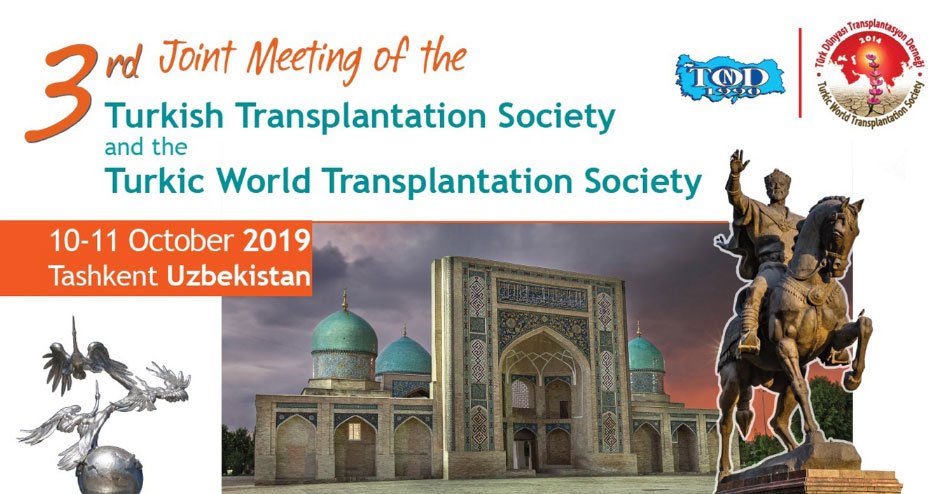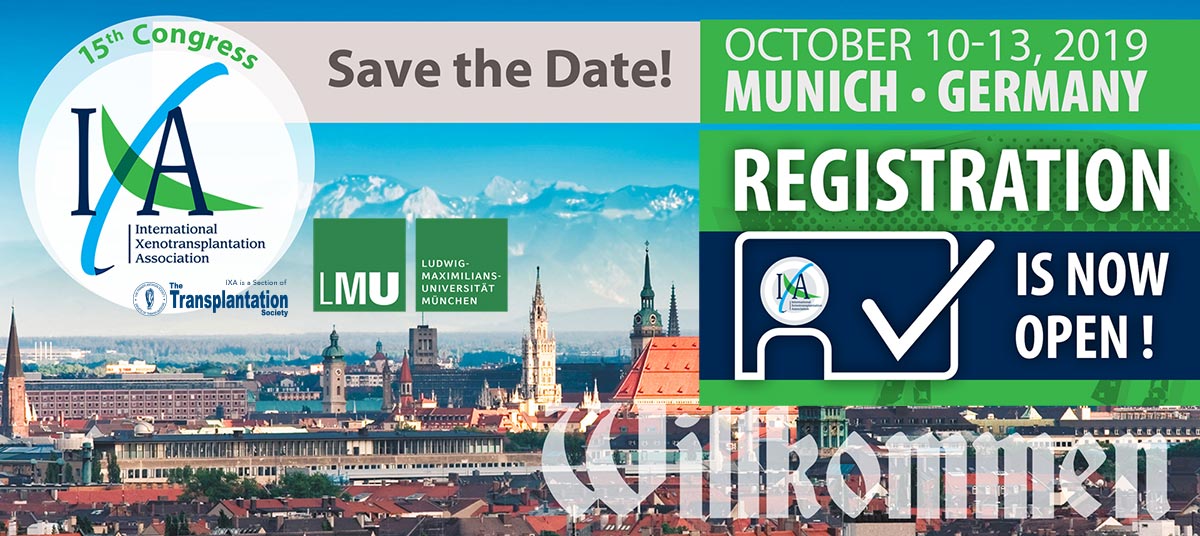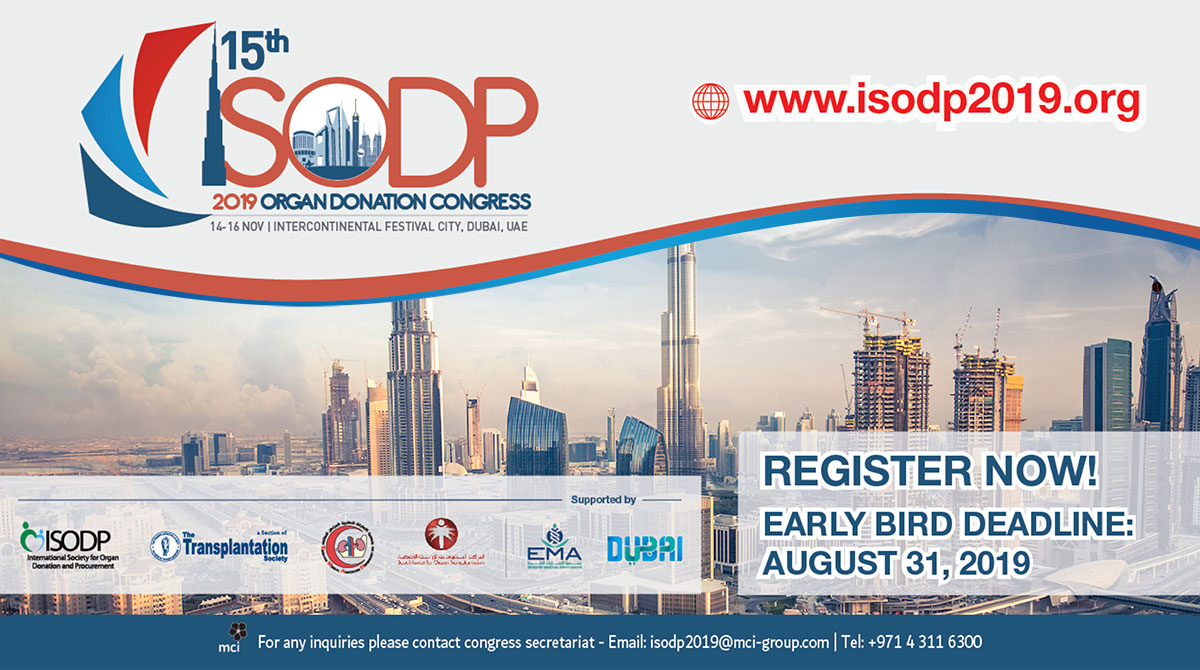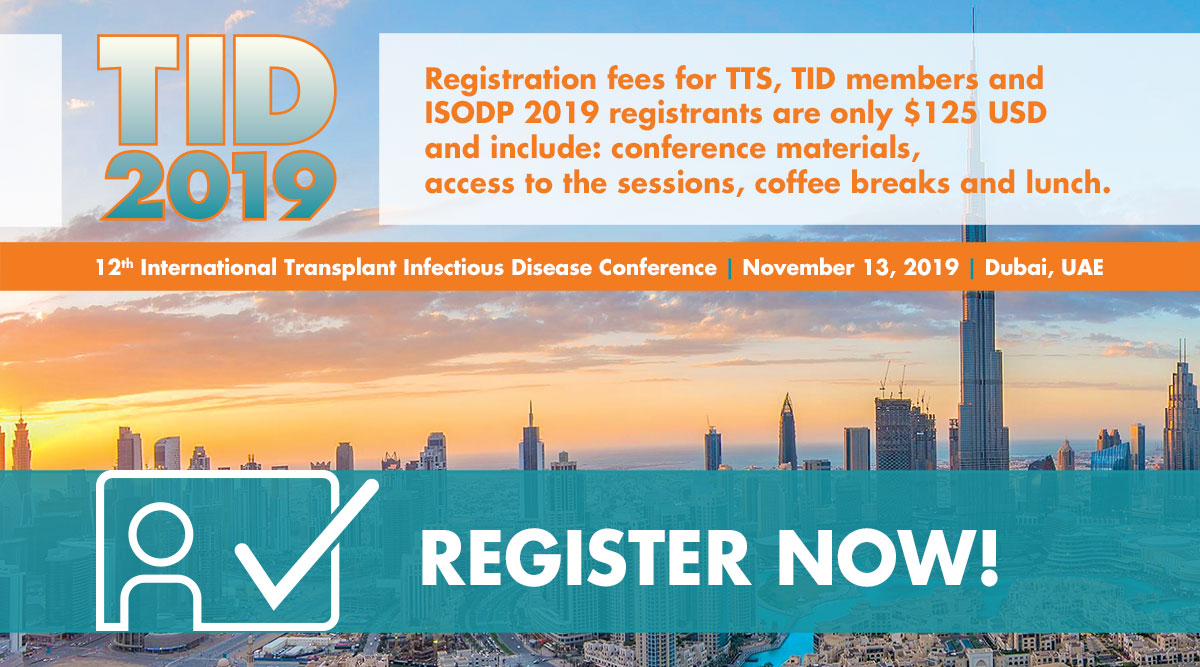
JUST RELEASED - TRANSPLANTATION - JULY ISSUE
This issue provides some fascinating papers on the ethical aspects of dual organ allocation, Lung transplant immunophenotyping, frailty, and CMV. Overviews on natural antibodies and antibodies that cross react with porcine antigens educate and the fascination of ultrasound T cell microbubble complexes provide interest for everyone. Pediatric liver transplantation is a focus this month along with simultaneous liver and lung transplantation. We also retract a group of papers now seen to be derived from organs from unethical sources.
CLICK HERE TO ACCESS THIS ISSUE
TTS MEMBERS - CLICK HERE TO SIGN-IN FOR OPEN ACCESS THROUGH TTS.ORG
IN CASE YOU MISSED IT:
TTS EDUCATION COMMITTEE'S PRECISION MEDICINE WEBINAR SERIES LAUNCH!
The pre-recorded series, applies current perspectives on precision medicine and the role of translational research and scientists/physician’s engagement to the field of transplantation, illustrating how these approaches have led to significant advancements in the field. It provides further justification for deliberate, targeted efforts to cross-in translational transplant research. TTS will release 1 recording per month. TTS members are invited to submit comments and questions about each webinar for two weeks after the video is released on the site. The questions will be sent to the speaker and moderator to respond and we will post the responses. Click Here to view this month’s webinar. Dr. Maarten Naesens presents on System Biology and Precision Transplantation Medicine: The Complexity of the human and transplant model and the different layers of biological information; Current applications; Composite scores: clinical applications. This webinar is moderated by Valeria Mas.
*Note, you must be logged in to participate.
CLICK HERE TO VIEWTRANSPLANTATION DIRECT - HIGHLIGHTED ARTICLE
Dr. Peri Husen, Editorial Fellow, Transplantation
SURVIVAL OUTCOMES ARE NOT AFFECTED WHEN LIVER TRANSPLANT SURGERY IS DONE AT NIGHT, DURING WEEKENDS, OR SUMMER MONTHS
Thuluvath PJ, Amjad S, Savva Y, et al.
Transplantation Direct: May 2019 - Volume 5 - Issue 5 - p e449
In this study, Thuluvath and coworkers aimed to answer the question as to whether hospitalized patients may receive suboptimal medical care during nights, on weekends or during summer holidays as a consequence of sleep deprivation, physician fatigue or reduced medical staffing. UNOS data sets of adult liver transplanted patients (between 02/2002 and 09/2016) were analyzed. The authors found that the time liver transplantation is performed (at night, on weekends and during summer months) does not effect graft or patient survival.
Based on this analysis, future risk-adjusted allocation models will include the functional status of transplant candidates. Paralleled by similar findings from transplantation of other solid organs, such models will possibly improve listing and transplantation strategies to further increase optimal utilization of organs with a benefit for the entire population and subsequently achieve a reduction of the donor kidney discard rate.
CLICK HERE TO VIEW (OPEN ACCESS)IN THE NEWS
Scientists develop an 'EpiPen' for brain and spinal cord injuries
July 19 - Brain and spinal cord injuries are notoriously difficult to treat, with many existing methods of treatment provoking undesirable side effects. Now, new research demonstrates a novel technique using nanoparticles to "program" the body's immune cells such that they don't cause any unintended damage and promote healing.
Global study connects cancer, takotsubo cardiomyopathy
JJuly 19 - A study published July 17 in the Journal of the American College of Cardiology has revealed a strong link between cancer and takotsubo cardiomyopathy, or "broken heart syndrome."
National Stem Cell Foundation Launches First 3-D Human Model of Parkinson's and Progressive MS to the International Space Station
July 21 - The National Stem Cell Foundation (NSCF) announced that research teams from the New York Stem Cell Foundation Research Institute, Summit for Stem Cell and Aspen Neuroscience launched the first brain organoids to study neurodegenerative disease in microgravity to the International Space Station on SpaceX 18, on July 21st. This is a preliminary flight in preparation for a first-in-kind study of neurodegeneration in microgravity scheduled to launch to the ISS later this fall.
Kidney Accelerated Placement Project adopts NKF approach to reduce kidney discards
July 22 - The Organ Procurement and Transplantation Network has launched the Kidney Accelerated Placement Project, which will implement recommendations from a National Kidney Foundation report in an effort to decrease the number of kidneys discarded, according to a press release.
Antibiotics before liver transplants lead to better results

July 22 - A UCLA-led research team has found that giving mice antibiotics for 10 days prior to a liver transplant leads to better liver function after the surgery. After concluding the experiment mice, the scientists discovered data from liver transplants performed between October 2013 and August 2015 at the Ronald Reagan UCLA Medical Center, revealing that the same phenomenon appears to hold true in humans..
Living donor LT provides better survival, lower costs vs. deceased donors
July 16 - Living donor liver transplantation showed multiple superior outcomes compared with deceased donor liver transplantation, including longer survival and shorter lengths of hospital stay, according to a study published in Annals of Surgery.
UPCOMING MEETINGS AND ANNOUNCEMENTS
CTRMS 2019 – LESVOS - GREECE
LATE BREAKING ABSTRACT SUBMISSION DEADLINE IS JULY 29TH!
TOND-TDTD - SAVE THE DATES - OCTOBER 10-11, 2019!
The 3rd Joint Meeting of the Turkish Transplantation Society and the Turkic World Transplantation Society will be held in Tashkent, Uzbekistan on October 10-11, 2019. The Scientific and Local Organizing Committees, comprised of international transplantation leaders, have developed a program that reflects current problems and represents a collection of scientific, educational, and practical information. The meeting will be an exciting opportunity for transplant professionals to share their expertise as well as their concerns regarding the development of the field in their own countries.
INTERNATIONAL TRANSPLANTATION SCIENCE MEETING 2019
ITS 2019 is set for Nov. 10-13 in Clearwater Beach, Florida. Keynote speakers include Katherine High, President and Head of R&D at Spark Therapeutics, and Ronald Germain, chief of Laboratory of Immune System Biology and Lymphocyte Biology Section at the National Institute of Allergy and Infectious Diseases National Institutes of Health.



